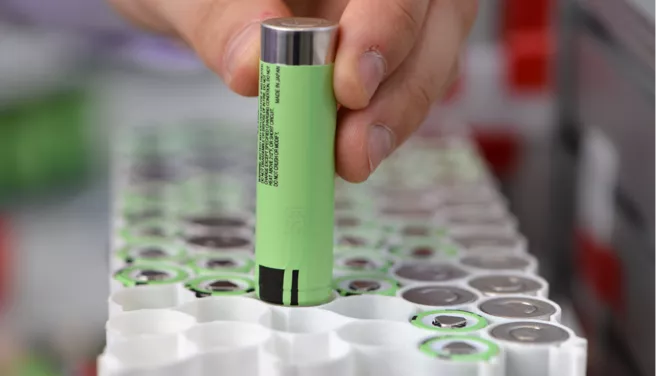These questions are precisely what spurred on scientist Dr. Fuzhan Rahmanian, who conducts research with Prof. Helge Stein at the Technical University of Munich. As part of Rahmanian's doctoral thesis, she developed a model called ARCANA, among other things, which will solve such questions in the future. She recently published her results in Nature Computational Materials. "With ARCANA, we can now almost magically predict the service life of batteries after just a few cycles," says the Iranian-born scientist with degrees in biomedical engineering, biophysics, materials science, and artificial intelligence.
Many things make the inner workings complex
But why is this important? Countless combinations of materials, chemical processes, and design options are available for developing new batteries. Testing all possible combinations and finding out how batteries behave throughout their life cycle is incredibly time-consuming.
"For example, if I wanted to look at a battery for 1,000 charge and discharge cycles, assuming one hour of charging and discharging time each, I would be busy for about eleven weeks," explains Rahmanian. "That's how long it takes to understand how the state of the battery will develop - and that doesn't exactly reflect real-life scenarios."
This is far from ideal. Batteries are challenging to model due to their complex behavior, which depends on the material, interfaces, and overall system.
Test marathons for batteries - soon to be a thing of the past?
To overcome this challenge, the TUM researcher worked on a joint project with BASF, which provided a wealth of data. "This allowed me to train my model with various data from different combinations and gave me a comprehensive knowledge base. This is an important prerequisite for the model to make accurate predictions," says Rahmanian.
ARCANA's talents are hidden in its name: it stands for Attention-based Recurrent Algorithm for Neural Analysis. In simple terms, the model can analyze data more efficiently by focusing on important aspects – that is, being more attentive – and applying weightings or establishing relationships between parameters. The model can thus identify which cycles, parameters, or materials have the most significant influence. This is particularly useful for batteries with different chemical compositions.
"We can use our model to predict the service life of practically all battery types," says the TUM researcher. "How long will the battery in the cell phone remain powerful? What are the best combinations for battery cells in electric cars? After how many cycles is one material preferable to another?" says Rahmanian, listing a few examples.
The user-friendly design makes ARCANA a tool that can be used to monitor battery tests in the laboratory online - and it is suitable for laboratory applications through to industrial designs where many batteries need to be tested simultaneously. With the model, the researcher has developed a valuable tool that can immensely speed up the discovery of new materials.
Original article: https://www.e-conversion.de/battery-life
Publication:
Attention towards chemistry agnostic and explainable battery lifetime prediction. Npj Comput. Mater.
Fuzhan Rahmanian, Robert M. Lee, Dominik Linzner, Kathrin Michel, Leon Merker, Balazs B. Berkes, Leah Nuss & Helge Sören Stein
https://www.nature.com/articles/s41524-024-01286-7
Contact:
Prof. Helge Stein
E-Mail: helge.stein(at)tum.de
Dr. Fuzhan Rahmanian
E-Mail: fuzhan.rahmanian(at)tum.de
